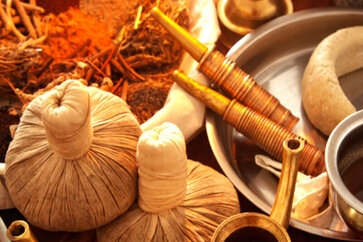Ayurveda for Women’s Health: A Complete Health Guide
Ayurveda, an ancient Indian system of medicine, is rooted in the belief of achieving balance and harmony between the mind, body, and spirit. It offers a comprehensive approach to health and well-being, focusing on prevention rather than merely treating diseases.
This holistic system emphasizes the importance of individual constitution (Prakriti), diet, lifestyle, and herbal remedies to promote optimal health.
The Significance of Women’s Health in Ayurveda
Ayurveda accords paramount importance to women’s health, recognizing the unique physiological and psychological changes they undergo throughout their lives.
From puberty to menopause, a woman’s body experiences significant transformations, each phase demanding specific care and attention.
Ayurvedic principles offer valuable insights into maintaining hormonal balance, reproductive health, and overall well-being during these critical life stages.
By addressing women’s health holistically, Ayurveda empowers women to take charge of their well-being and live fulfilling lives.
Definition and Principles of Ayurveda
Ayurveda, meaning “science of life,” is an ancient Indian system of medicine that aims to balance the mind, body, and spirit.
It is founded on the belief that health is a reflection of the harmony between an individual and their environment. The core principles of Ayurveda include:
- Prakriti: The unique constitution of an individual, determined by a combination of the three doshas.
- Agni: Digestive fire, responsible for transforming food into energy and tissues.
- Doshas: The three fundamental energies (Vata, Pitta, Kapha) that govern physiological and psychological processes.
- Dhatus: Seven essential tissues formed from digested food.
- Malas: Waste products that need to be eliminated efficiently.
Ayurveda emphasizes prevention, holistic well-being, and personalized treatment plans based on an individual’s constitution.
The Three Doshas: Vata, Pitta, and Kapha
The three doshas are the fundamental energies that govern all physiological and psychological processes in the body. Each dosha is a combination of the five basic elements (ether, air, fire, water, and earth).
- Vata: Composed of ether and air, Vata governs movement, creativity, and nervous system function. Individuals with a predominant Vata dosha tend to be energetic, enthusiastic, and adaptable but can also experience anxiety, dryness, and irregularity.
- Pitta: Composed of fire and water, Pitta governs metabolism, digestion, and transformation. Pitta individuals are often intelligent, focused, and leaders but can also be prone to anger, inflammation, and acidity.
- Kapha: Composed of earth and water, Kapha governs structure, stability, and immunity. Kapha individuals are typically loving, compassionate, and grounded but can also experience sluggishness, weight gain, and emotional inertia.
Everyone possesses all three doshas, but one or two are usually predominant. Understanding your unique dosha combination is essential for maintaining balance and optimal health.
Ayurveda and Women’s Health
Ayurveda recognizes the distinct physiological and psychological phases a woman undergoes throughout her life. These stages, marked by hormonal fluctuations and reproductive functions, demand specific care and attention. Key areas of focus in women’s health within Ayurveda include:
- Menstruation: Ayurveda considers menstruation as a vital process and offers guidelines for maintaining balance during this phase.
- Pregnancy: The Ayurvedic approach to pregnancy emphasizes maternal and fetal well-being, offering dietary recommendations, lifestyle adjustments, and herbal remedies.
- Postpartum: Ayurveda provides care for the mother’s physical and emotional recovery after childbirth, including diet, herbs, and massage.
- Menopause: This phase is seen as a natural transition, and Ayurveda offers strategies to manage symptoms like hot flashes, mood swings, and sleep disturbances.
Role of Doshas in Women’s Health
The three doshas—Vata, Pitta, and Kapha—play a crucial role in women’s health. Each phase of a woman’s life is influenced by the predominance of different doshas. For instance:
- Menstruation: Vata dosha is often dominant, leading to potential imbalances like irregular cycles, cramps, and mood swings.
- Pregnancy: Pitta dosha increases, influencing digestion, metabolism, and emotional balance.
- Menopause: Vata and Pitta can become aggravated, contributing to symptoms like hot flashes and irritability.
By understanding the doshic influence, women can make lifestyle adjustments, dietary choices, and herbal remedies to balance their constitution and alleviate specific health concerns.
Common Women’s Health Issues and Ayurvedic Solutions
Ayurveda offers comprehensive solutions for common women’s health issues. From menstrual irregularities and infertility to menopause symptoms and postpartum care.
This ancient system emphasizes holistic well-being. By balancing the doshas, incorporating specific herbs, and making lifestyle adjustments, Ayurveda empowers women to manage their health naturally.
1. Menstrual Health in Ayurveda
Ayurveda recognizes menstruation as a vital process for women’s health and well-being.
It is seen as a natural detoxification process that helps maintain hormonal balance. However, imbalances in the doshas can lead to menstrual irregularities, pain, and discomfort.
Ayurvedic Remedies for Menstrual Cramps
Menstrual cramps, often caused by an imbalance of Vata dosha, can be alleviated through Ayurvedic practices. Some effective remedies include:
Warmth therapy:
- Applying a warm water bottle or heating pad to the lower abdomen can relax the muscles and reduce pain.
Herbal remedies:
- Ginger: Known for its anti-inflammatory properties, ginger can help alleviate cramps and nausea.
- Turmeric: With its anti-inflammatory and pain-relieving qualities, turmeric can be consumed as a tea or supplement.
- Cinnamon: Helps regulate menstrual cycles and reduce discomfort.
Diet:
- Incorporate warming spices like cumin, coriander, and black pepper into your diet.
- Avoid cold and heavy foods during menstruation.
Lifestyle:
- Practice relaxation techniques like yoga and meditation to reduce stress.
- Ensure adequate sleep.
Balancing Hormones Naturally
Hormonal imbalances can manifest in various menstrual issues. Ayurveda offers holistic approaches to regulate hormones:
Dietary adjustments:
- Consume hormone-balancing foods like flaxseeds, sesame seeds, and avocados.
- Avoid excessive sugar and processed foods.
Herbal remedies:
- Shatavari: Known for its hormone-balancing properties, Shatavari supports the reproductive system.
- Ashwagandha: An adaptogen that helps manage stress and supports hormonal balance.
Lifestyle modifications:
- Regular exercise helps regulate hormones.
- Prioritize sleep for optimal hormonal function.
- Manage stress through relaxation techniques.
It’s essential to consult with an Ayurvedic practitioner for personalized guidance based on your specific constitution and health concerns.
2. Ayurvedic Treatments for Fertility
Ayurveda offers a holistic approach to addressing fertility challenges. By focusing on balancing the doshas, and improving overall health. and addressing underlying imbalances, it can enhance fertility for both men and women. Key Ayurvedic treatments include:
- Panchakarma: This detoxification process helps eliminate toxins from the body, creating an optimal environment for conception.
- Herbal remedies: Specific herbs like Ashwagandha, Shatavari, and Shilajit are known for their fertility-boosting properties.
- Dietary modifications: A balanced diet rich in nutrients supports reproductive health.
- Lifestyle changes: Regular exercise, stress management, and adequate sleep are crucial.
- Uttaravasti: A specialized Ayurvedic procedure involving the administration of medicated oil into the vagina to nourish the reproductive tissues.
It’s important to note that while Ayurveda can be beneficial, it’s not a substitute for conventional medical treatments. A combined approach often yields the best results.
Supporting Pregnancy and Postpartum Care
Ayurveda offers comprehensive care for women throughout pregnancy and postpartum.
Pregnancy:
- Diet: A nourishing diet with emphasis on easily digestible foods is recommended.
- Lifestyle: Regular exercise, adequate rest, and stress management are essential.
- Herbal remedies: Certain herbs can be used to alleviate pregnancy discomforts.
- Prenatal massage: Gentle massage can relax the body and mind.
Postpartum:
- Diet: A balanced diet with emphasis on lactation-supporting foods is crucial.
- Lifestyle: Adequate rest, support, and bonding with the baby are essential.
- Herbal remedies: Herbs can help with postpartum recovery and lactation.
- Postpartum massage: Helps with relaxation and body recovery.
Ayurveda emphasizes the importance of self-care and nurturing the mother’s body and mind during this transformative period.
3. Menopause: An Ayurvedic Approach
Menopause, a natural transition in a woman’s life, often comes with a range of physical and emotional symptoms. Ayurveda offers a holistic approach to manage these challenges and promote overall well-being.
Managing Menopause Symptoms with Ayurveda
Ayurveda focuses on balancing the doshas (Vata, Pitta, and Kapha) to alleviate menopausal discomforts. Common symptoms like hot flashes, mood swings, sleep disturbances, and vaginal dryness can be addressed through:
Diet:
- Incorporate cooling foods like cucumber, coconut water, and leafy greens.
- Reduce spicy, oily, and heavy foods.
- Include calcium-rich foods for bone health.
Lifestyle:
- Prioritize regular sleep and establish a calming bedtime routine.
- Practice stress management techniques like meditation and yoga.
- Engage in gentle physical activity.
Herbal remedies:
- Ashwagandha: Helps balance hormones and reduce stress.
- Shatavari: Supports the reproductive system and alleviates menopausal symptoms.
- Soy isoflavones: Can help manage hot flashes and mood swings.
- Panchakarma: This Ayurvedic detoxification process can help restore balance and alleviate menopausal discomforts.
Herbs and Practices for a Smoother Transition
Ayurveda offers a range of herbs and practices to support women through menopause:
Herbs:
- Triphala: Improves digestion and supports overall health.
- Licorice: Helps balance hormones and reduce inflammation.
- Brahmi: Calms the nervous system and improves memory.
Practices:
- Abhyanga: Self-massage with warm oil nourishes the skin and relaxes the body.
- Shirodhara: A continuous stream of warm oil poured on the forehead calms the mind.
- Yoga and meditation: Promote stress reduction and emotional well-being.
It’s important to note that while Ayurveda offers effective remedies, consulting with an Ayurvedic practitioner for personalized guidance is recommended.
Lifestyle Practices for Optimal Health for Women
Nourish your body with wholesome foods and embrace regular exercise for vitality. Prioritize restful sleep, manage stress, and cultivate mindfulness for overall well-being.
Daily Routines (Dinacharya) for Women
Ayurveda emphasizes the importance of establishing a consistent daily routine, or Dinacharya.
For women, this includes practices like early rising, self-care rituals (abhyanga or oil massage), gentle exercise, meditation, and a balanced diet.
Dinacharya helps regulate biological rhythms, boost immunity, and promote overall well-being.
Seasonal Routines (Ritucharya) for Optimal Health
Ritucharya involves adapting lifestyle and diet according to the changing seasons. By aligning with nature’s cycles, one can maintain balance and prevent imbalances.
For example, during the winter, focusing on warming foods and practices is beneficial, while in the summer, cooling measures are emphasized.
Importance of Exercise and Yoga
Exercise and yoga are integral components of Ayurvedic lifestyle. They help improve flexibility, strength, balance, and circulation.
Regular physical activity also supports mental clarity, stress reduction, and emotional well-being. Yoga, in particular, is valued for its holistic benefits, combining physical postures, breathing techniques, and meditation.
While Ayurveda offers a wealth of wisdom, it is essential to consult with a qualified Ayurvedic practitioner for personalized advice.
FAQs
1. What is the best Ayurvedic herb for women’s health?
Shatavari is highly regarded for supporting reproductive health, balancing hormones, and promoting overall well-being.
2. How can Ayurveda help with menstrual cramps?
Ayurveda recommends herbs like ginger and turmeric, warm sesame oil massages, and gentle yoga to alleviate menstrual cramps.
3. Are Ayurvedic treatments safe during pregnancy?
Many Ayurvedic treatments are safe during pregnancy, but always consult with a qualified practitioner for personalized advice.
4. Can Ayurveda support mental health?
Yes, practices like meditation, pranayama, and herbs like Brahmi and Ashwagandha can help reduce stress and anxiety, promoting mental well-being.
5. How to find a qualified Ayurvedic practitioner?
Look for certified practitioners with formal training, check professional organizations, and read reviews to find a trustworthy Ayurvedic practitioner.
6. Can Ayurveda help with menopause symptoms?
Yes, Ayurveda offers natural remedies like herbs, dietary changes, and lifestyle practices to help manage hot flashes, mood swings, and other menopause symptoms.
7. What dietary changes does Ayurveda recommend for women?
Ayurveda suggests a balanced diet with fresh, seasonal foods, emphasizing fruits, vegetables, whole grains, and plenty of water, while avoiding processed foods and excessive caffeine.
8. How does Ayurveda support reproductive health?
Ayurveda supports reproductive health through herbs like Ashwagandha and Shatavari, balanced nutrition, and specific lifestyle practices to enhance fertility and overall reproductive function.
9. What are some Ayurvedic practices for healthy skin?
Ayurvedic skincare includes natural treatments like turmeric masks, oil massages with coconut or sesame oil, and a diet rich in fruits and vegetables for glowing skin.
10. How often should I see an Ayurvedic practitioner?
Regular visits, typically every 1-3 months, are recommended to monitor progress and adjust treatments as needed, but the frequency can vary based on individual health needs.
From menstrual health to menopause, Ayurveda provides guidance on various stages of a woman’s life.
Incorporating Ayurvedic practices such as diet, lifestyle modifications, and herbal remedies can significantly improve overall health and quality of life.


























